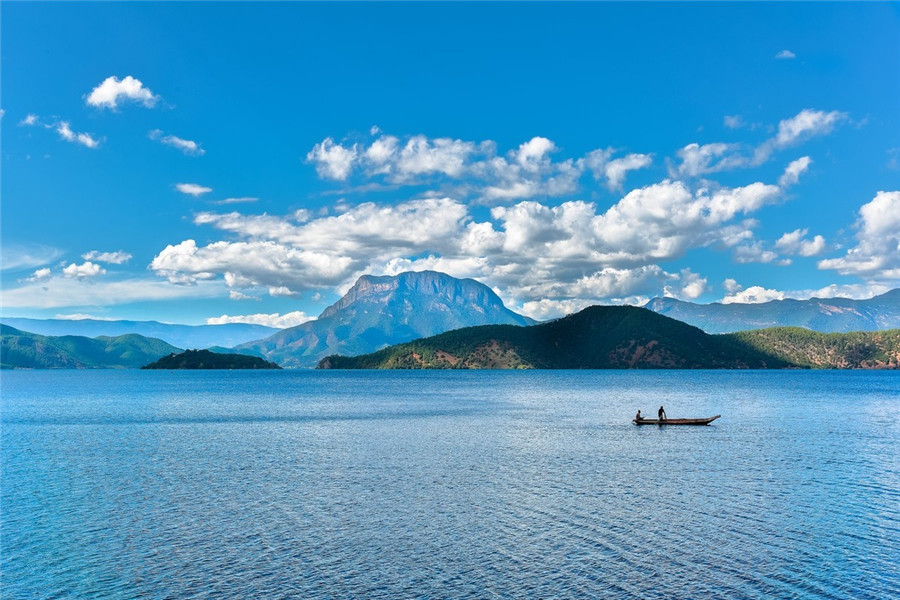How to Visit Yunnan – A Complete Guide from Yunnan Local Travel Expert
To visit Yunnan, a province renowned for its diverse landscapes, rich cultural heritage, and vibrant ethnic minorities, here’s a comprehensive guide that covers everything from planning your trip to experiencing its unique offerings:
1. Planning Your Trip
- Best Time to Visit: Yunnan’s climate varies significantly, so the best time depends on your interests. Spring (March to May) and autumn (September to November) generally offer pleasant weather with blooming flowers and clear skies. Summers (June to August) can be rainy, while winters (December to February) are cold but ideal for snow enthusiasts in higher elevations.
- Entry Requirements: Ensure you have a valid passport and obtain the necessary visa or travel permits if required. Check current travel advisories and any specific entry requirements for international travelers.
- Transportation: Decide on your mode of transportation. Yunnan has an extensive network of airports, including major cities like Kunming, Lijiang, and Dali, offering domestic and some international flights. High-speed trains connect major cities, providing a convenient and scenic travel option. For more remote areas or specific itineraries, consider renting a car or hiring a local guide with a vehicle.
2. Must-See Destinations
- Kunming: The provincial capital known as the “City of Eternal Spring” for its pleasant climate year-round. Visit the Stone Forest (Shilin), a UNESCO World Heritage site, and explore local markets like the Flower and Bird Market.
- Dali: Experience the laid-back atmosphere of Dali Ancient Town, surrounded by the stunning Erhai Lake and Cangshan Mountain. Don’t miss the Three Pagodas and Xizhou Village to learn about Bai ethnic culture.
- Lijiang: Explore the UNESCO-listed Lijiang Ancient Town, characterized by its intricate network of canals, bridges, and traditional Naxi architecture. Jade Dragon Snow Mountain and Tiger Leaping Gorge are popular natural attractions nearby.
- Shangri-La: Known for its Tibetan culture and breathtaking landscapes, visit Songzanlin Monastery (Little Potala Palace) and explore the rugged beauty of the nearby Ganden Sumtseling Monastery.
- Xishuangbanna: Discover the tropical side of Yunnan with its lush rainforests, Dai ethnic culture, and the vibrant Menglun Botanical Garden. Attend the Water Splashing Festival in April, a highlight of Dai cultural celebrations.
3. Cultural Experiences
- Ethnic Minorities: Yunnan is home to 25 of China’s 56 recognized ethnic groups, each with distinct traditions and customs. Explore local markets, attend festivals, and consider homestay experiences in villages to immerse yourself in their unique way of life.
- Culinary Delights: Sample Yunnan’s diverse cuisine, influenced by its ethnic diversity and geographic variety. Taste dishes like Crossing the Bridge Rice Noodles (Guo Qiao Mi Xian), Steam Pot Chicken (Qiguo Ji), and local teas.
4. Outdoor Adventures
- Hiking and Trekking: From the rugged Tiger Leaping Gorge to the pristine landscapes of Yuanyang’s rice terraces, Yunnan offers ample opportunities for trekking and hiking enthusiasts of all levels.
- Nature and Wildlife: Explore national parks and reserves like Pudacuo National Park, home to endangered species and stunning lakes. Birdwatching in places like Gaoligongshan and Baihualing offers glimpses of rare avian species.
5. Practical Tips
- Language: While Mandarin Chinese is widely spoken, especially in tourist areas, learning basic phrases in Mandarin or local dialects can enhance your travel experience.
- Accommodation: Yunnan offers a range of accommodations from luxury hotels to budget guesthouses and unique boutique stays. Book accommodations in advance, especially during peak seasons.
- Responsible Travel: Respect local customs and traditions, support local businesses, and minimize your environmental impact when exploring natural areas.
6. Safety and Health
- Health Precautions: Check vaccination requirements and carry necessary medications, especially if traveling to remote areas. Yunnan’s high altitude areas may require acclimatization.
- Safety: Yunnan is generally safe for travelers, but exercise caution in crowded areas and be mindful of your belongings.
7. Additional Resources
- Local Guides: Consider hiring local guides or joining organized tours to gain deeper insights into Yunnan’s culture, history, and natural beauty.
- Travel Apps: Use apps for translation, navigation, and weather updates to enhance your travel experience.
By planning ahead and embracing Yunnan’s diversity, you can create a memorable journey through this captivating province, rich in history, nature, and cultural experiences.


















